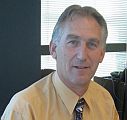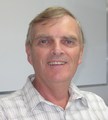FLASHBACK TO 2013: “The Primer on Land Development Process in British Columbia supports implementation of targets and actions listed in Living Water Smart – these establish expectations as to how land will be developed,” stated Tim Pringle when the Primer was released by the Partnership for Water Sustainability at the 2013 Annual Convention of the Union of BC Municipalities

“The Primer is a ‘bridging document’ because it illustrates how to seamlessly integrate the legal and administrative parts of the Land Development Process through the designing with nature and rainwater management lens,” stated Tim Pringle. “While much attention is given to the technical and legal aspects, we are not aware of anyone who has addressed administration. This piece of the puzzle is the key to implementation of effective rainwater management systems on private property.”










